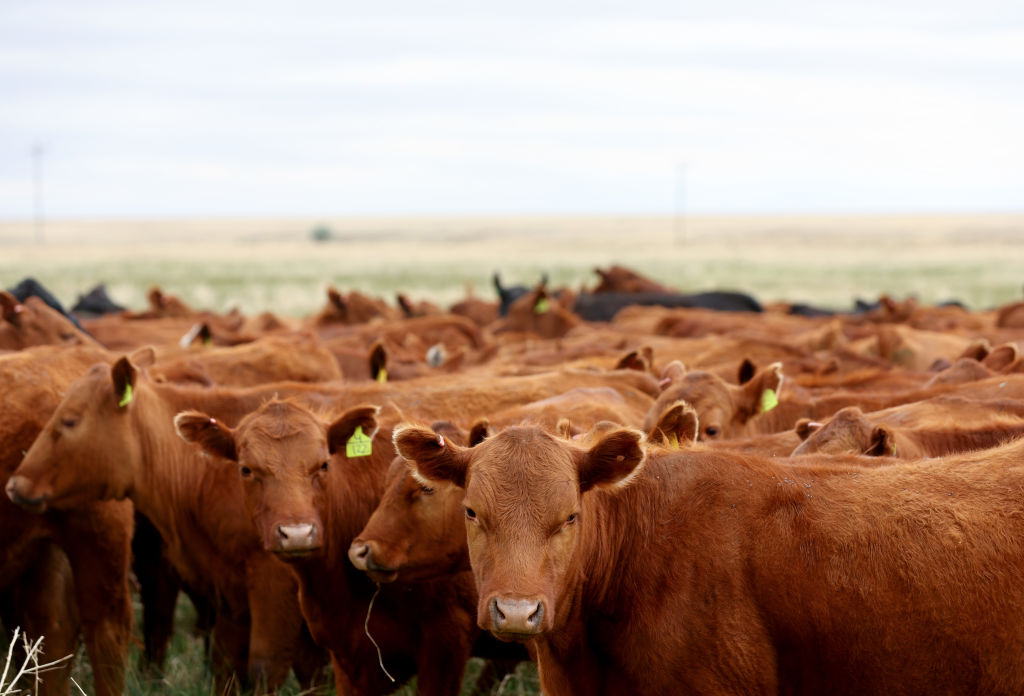
Greenhouse gas emissions from the world’s top meat and dairy producers increased further this year, highlighting the urgent need for the food industry to clean its practices and help prevent global warming.
Disclosed emissions from the world’s 20 largest publicly-listed meat and dairy companies rose 3.3% from 2022 levels, according to a report by investor network FAIRR Initiative. Its analysis includes companies like Hormel Foods Corp. and China’s New Hope Liuhe Co., which supply household names like Walmart Inc. and McDonald’s Corp.
The food industry’s climate footprint is immense, accounting for about a third of global greenhouse gases. Livestock, which releases potent methane, makes up 14.5% of worldwide emissions. The Science-Based Targets initiative, a UN-backed agency that evaluates companies’ net-zero goals, recommends that the food and agriculture sector cuts emissions by 3% a year between 2020 and 2030.
“The sector is just not on track,” said Thalia Vounaki, senior manager for research and engagements at FAIRR.
More From TIME
Read more: Cow Burps Have a Big Climate Impact. Solving That is Harder than You'd Think
That underlines the need to focus on food and agriculture as world leaders gear up for the upcoming COP28 summit in Dubai later this month, FAIRR said in its report. The group of investors raises awareness about the environmental, social and governance risks and opportunities in the global food sector, and is backed by more than $70 trillion in assets.
The United Arab Emirates has called for commitments to transform the food industry, while the United Nations’ Food and Agriculture Organization is set to unveil a net-zero roadmap for the sector.
FAIRR’s report highlights that some companies have managed to reduce their emissions, such as Tyson Foods Inc. and Danone SA. But overall there are varying levels of climate commitments and disclosure, it said. Almost two-thirds of the companies it analyzed didn’t disclose so-called Scope 3 emissions, which include those that occur indirectly along a company’s value chain. Only four out of top 20 companies in the sector have net-zero aims.
Read more: The Cow That Could Feed the Planet
“We need to get these companies up to the same standard, irrespective of where they’re sitting,” Oshni Arachchi, head of active ownership at Danske Bank A/S, said in an interview.
FAIRR’s sixth protein producer index has highlighted improvements made by the livestock industry, including in areas like alternative proteins, waste and pollution and water use, it said. While that shows “bad practice is not an inevitable part of the food supply ecosystem,” the investor group urged for more progress on environmental aspects.
“We’ve long known that humanity can’t fix climate change without fixing the way we feed the world,” according to Jeremy Coller, private equity investor and founder of FAIRR.
More Must-Reads From TIME
- The 100 Most Influential People of 2024
- How Far Trump Would Go
- Scenes From Pro-Palestinian Encampments Across U.S. Universities
- Saving Seconds Is Better Than Hours
- Why Your Breakfast Should Start with a Vegetable
- 6 Compliments That Land Every Time
- Welcome to the Golden Age of Ryan Gosling
- Want Weekly Recs on What to Watch, Read, and More? Sign Up for Worth Your Time
Contact us at letters@time.com